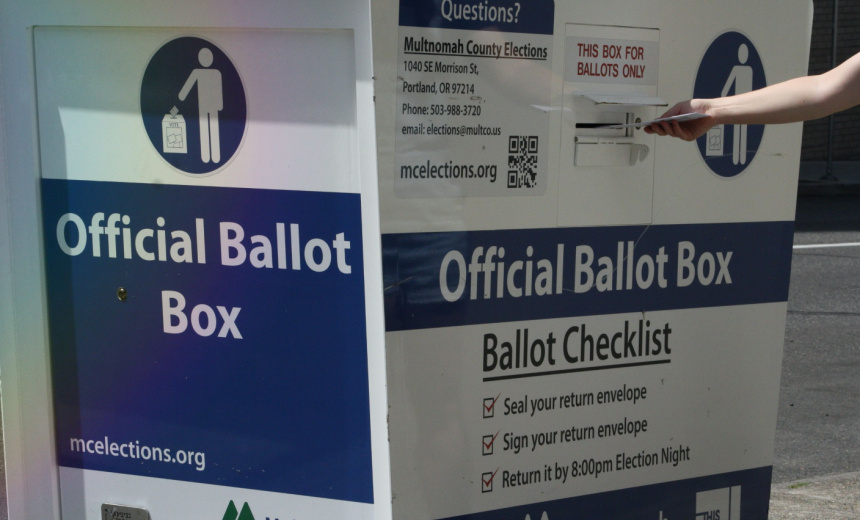Election Security
,
Fraud Management & Cybercrime
Foreign Influence Campaigns Intensify as Experts Tout Election Security Upgrades

Foreign influence campaigns are intensifying in a mounting effort to disrupt what experts call the most secure election in United States history, even as concerns grow over interference, cyber threats and physical security.
See Also: New Zealand Ministry of Education Protecting Student and Faculty Communications Nationwide
More than 50 million Americans have already voted, according to early tracking data, as a Tuesday report from the Foundation for Defense of Democracies revealed that foreign interference efforts persist despite struggling to gain “significant traction.” The report said security researchers largely exposed Russian, Iranian and Chinese influence operations “before their narratives and posts went viral,” with experts stating the United States is far better prepared for the onslaught of influence campaigns than it was in 2016.
“We’ve advanced considerably since 2016 when there was sort of a moral panic surrounding foreign malign influence specifically coming from Russia,” Max Lesser, a senior analyst on emerging threats for FDD and author of the report, told reporters during a media briefing. “What we see now eight years later is a tremendous improvement on a whole-of-society level.”
Federal authorities are warning in real-time about escalating disinformation threats, with the U.S. Intelligence Community stating Friday that Russian actors “manufactured and amplified a recent video that falsely depicted an individual ripping up ballots in Pennsylvania.” A joint statement from the FBI, Cybersecurity and Infrastructure Security Agency and Office of the Director of National Intelligence also said the video was “part of Moscow’s broader effort to raise unfounded questions about the integrity of the US election and stoke divisions among Americans.”
CISA published an election threat updates webpage Monday that aims to provide the public with accessible information into the evolving threat environment “and how foreign actors are seeking to influence and interfere with our democratic process, according to the agency. Intelligence agencies also released a declassified assessment of foreign threats to the U.S. elections after voting ends in 2024, warning that “some foreign actors may conduct activities that seek to disrupt or delay the time-sensitive and tightly sequenced series of processes and events that begin after polls close.”
Physical threats to polling sites may also be escalating, as authorities search for those responsible for setting ballot drop boxes on fire in the Pacific Northwest. Authorities say a culprit set fire to at least two ballot boxes, one in Washington and another in Oregon.
While most ballots in a damaged Portland ballot box were unaffected due to a fire suppression system, a separate ballot box fire in Vancouver, Washington destroyed hundreds of ballots, reported.
“An attack on a ballot box is an attack on our democracy and completely unacceptable,” Oregon Secretary of State LaVonne Griffin-Valade said Monday. “Whatever the motivation behind this incident, there is no justification for any attempt to disenfranchise voters.”
Protections are in place to handle even the most severe threats to cyber and physical election security, according to David Becker, executive director and founder of the nonprofit Center for Election Innovation & Research – even firebombing ballot boxes.
“I expect that – hopefully – all of those individuals who cast ballots that were damaged or destroyed will get a chance to cast a replacement ballot that will count,” Becker told reporters during a Tuesday media briefing.
“It’s normal for people to be concerned about the security of this election, and it’s clear that there are forces who are trying to create a narrative of chaos,” he added. “Despite these isolated attempts … it’s remarkable how well the election has gone for those 50 million people who cast ballots.”
